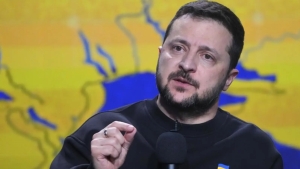The new universal mRNA vaccine will defeat cancer

A scientific article published in the journal Nature Biomedical Engineering shows that new directions are emerging in the fight against cancer, one of the world's most serious diseases. This was reported by Zamin.uz.
This research was conducted by leading specialists at the University of Florida. Unlike traditional cancer vaccines, this study tested a universal mRNA vaccine.
This vaccine stands out because it can be applied against any type of tumor. Typically, cancer vaccines target specific proteins in tumor cells.
However, the new mRNA vaccine directly activates the immune system, as if preparing the body to fight a dangerous virus. In this way, a strong immune response helps to effectively combat the tumor.
In addition to the vaccine, commonly used immunotherapy agents, including PD-1 inhibitors, were used in the study. The results were so positive that types of cancer such as melanoma and brain tumors, which previously did not respond to treatment, shrank or completely disappeared.
In some cases, the vaccine was effective even without additional agents. Scientists explain this by stating that the mRNA vaccine increases the expression of the PD-L1 protein within the tumor, allowing the immune system to recognize tumors more quickly and turn them into weakened attack targets.
This achievement is a continuation of scientific research in 2023, where a personalized mRNA vaccine against glioblastoma was created and successfully tested in clinical trials. At that time, the vaccine was made from the individual tumor cells of each patient.
The most important aspect is that the new mRNA vaccine is considered universal. It is aimed at activating the general immune system rather than targeting a specific type of cancer.
This allows it to be widely used against many types of cancer and to be utilized as a cheaper, mass treatment option. Scientists are evaluating this result as a significant scientific achievement.
If similarly positive results are recorded in subsequent clinical trials, this vaccine is expected to become a key weapon against types of cancer that do not respond to traditional treatment methods. Currently, the scientific team is continuing to work on the vaccine formula and preparing to start clinical trials in humans.
There are hopes that a new era in world medicine may begin, which is becoming a reality not only in theory but also in practice.







